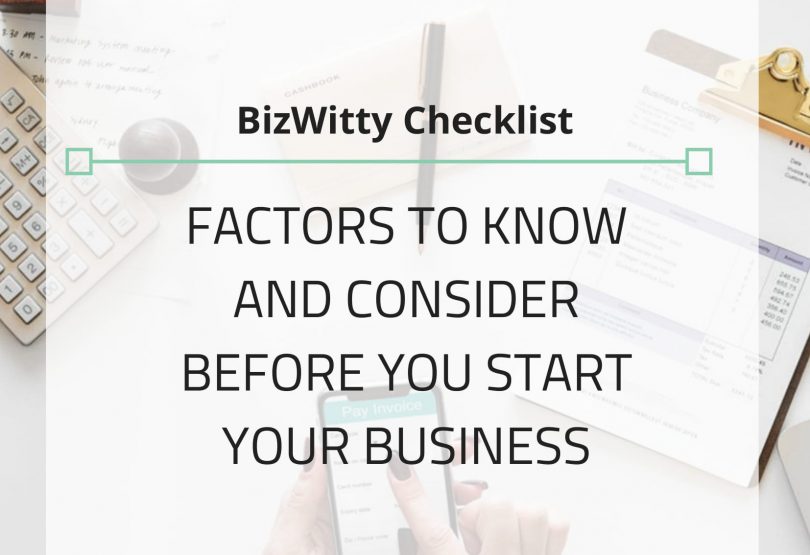Contents
There is no shortage of books, articles and blogs telling us what we need to do before we start a business. Telling someone what they need to do versus that they really need to know to make a business successful, is quite another story.
A good idea and a great business plan are two of the best ways to creating a business. There are also other elements that complete the plan, so you do not leave anything to chance. Here are some factors (in there most simplistic form) to know and consider before you embark on your journey so that you do not run into any future complications.
Download the checklist to find out the factors to consider before starting your business in Australia.
1.Create a Business plan
Define your business -, what are you going to offer and what will your market be? Knowing yourself is a good first step and this means you need to be clear as to what outcomes you want to achieve. Then, analyse the market and how you want to position yourself, where you want to ‘play’, and above all, be very clear about who your customers will be, how you will capture their attention and how you want to reach them.
2. Financing
Create a budget and make sure you have the necessary funds for the launch. Getting a (bank, family etc) loan is often complicated; and the loan, whatever the type, is only ‘a starting incentive’. It cannot be considered a continual source of financing as it seldom covers your entire projects costs. The same applies if you need money anytime once your business is ‘up and running’; It serves as a great cash injection but you cannot count on it long term. Financing should not be viewed as something to be avoided. You should plan to have it available but use it wisely.
3. Accounting.
It is one of the best guarantees for the survival of your business. Without solid financial health, and ensuring you plan to maintain it, it is likely you will encounter both personal and cash flow ‘stress’ – something to be avoided at all cost. It seems obvious, but plan for expenses like your rent, paying invoices to suppliers, the staff salary, GST to the government etc. These expenses come around very quickly and not being prepared can cause your business severe harm.
4. Choose your partner/s wisely
Family and friends rarely make the best business partners or advisors– period. Choose to surround yourself with professionals who understand the company and can contribute to its growth – including your own professional growth. Some owners want a partner to assist with the finance, some to contribute their business knowledge and some want the partner who is neither available or required, IE ‘silent partner’. Be very clear and honest with yourself as to why you are asking someone else to get involved in your business, and hence them being a major factor in the way it is run and managed. How essential is it to have a partner?
Download the checklist to find out the factors to consider before starting your business in Australia.
5.The Team
Following on from the previous point, surround yourself with the best professionals available – your staff – and express what it is you want and need from them. By agreeing to work with you, they have ‘bought’ into your company and your ideas; basically, something new with a secure, but initially, uncertain future.
6. A Marketing plan
A) Not all campaigns and marketing have to involve a large investment.
B) Try to be seen by the ‘right’ people where ever you can – social networks in particular.
C) Surprise your clients by involving them as much as possible in your marketing.
D). Do not underestimate the power of the media: turn your business into news, capture their interest and get free publicity; it’s not easy to do, but do not give up on it too easily.
7.Co-sharing.
Consider the opportunity of working in a co-sharing space when you start your business. It may not be appropriate for all businesses, but the ecosystem allows you to mix and talk to other business owners in a similar situation to yourself. Many co-sharing premises have offices you can rent as your own, but the overall environment allows for fantastic interaction to take place.
The wrap up – Accept that you don’t know what you don’t know. Take your business, marketing and staff plan and talk to experts who have the knowledge you don’t. Share your plans with them and listen carefully to what they have to say about it.
Also ensure you have a qualified and cohesive team of staff members; It is of tremendous benefit to all businesses, particularly when you are starting out. Lastly, talk to people you know (or find them via others) who have been in business and ‘tap into’ their experience; specifically ask them about the issues they faced when they entered business for themselves, that way you can avoid their mishaps and focus on the reasons you went into business for yourself.







